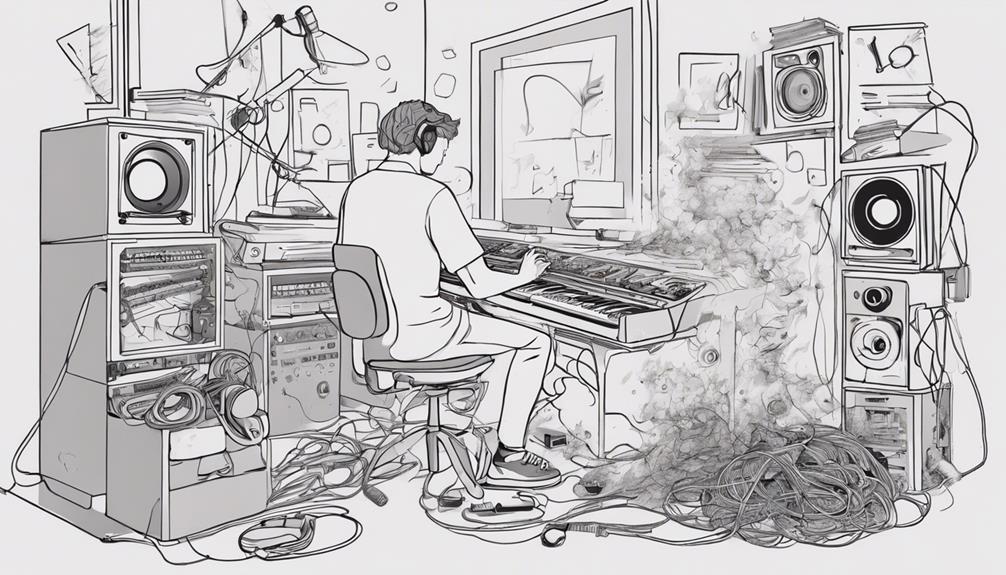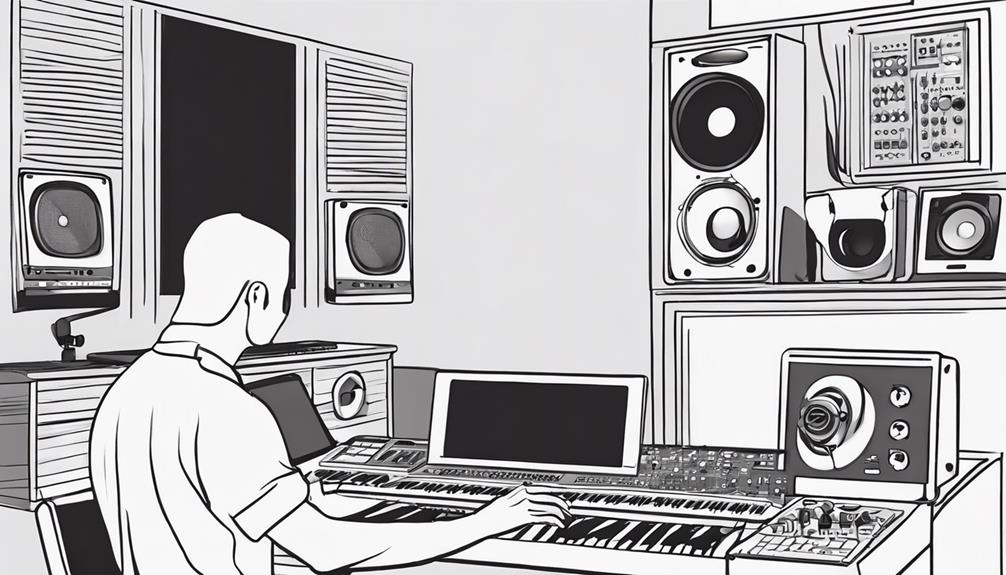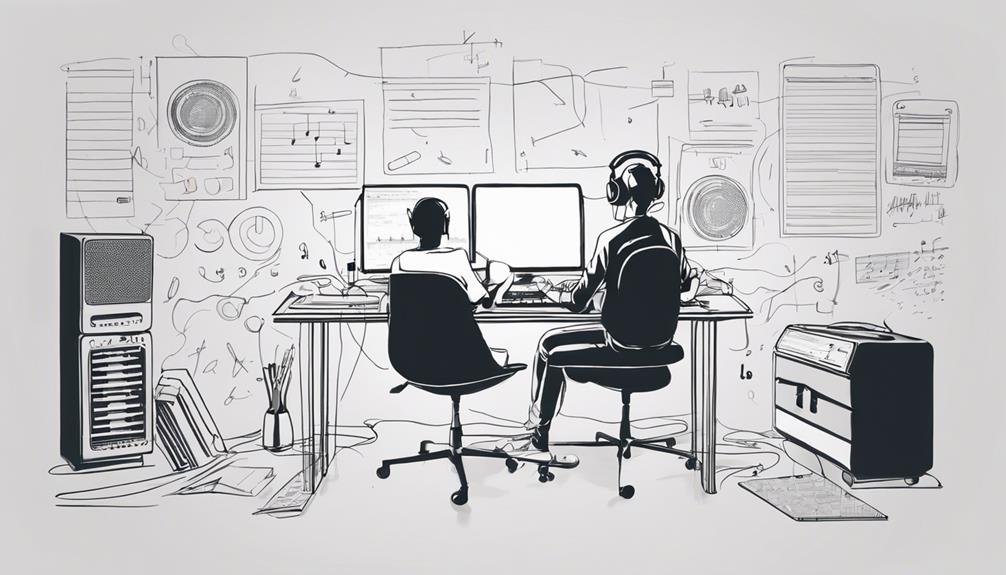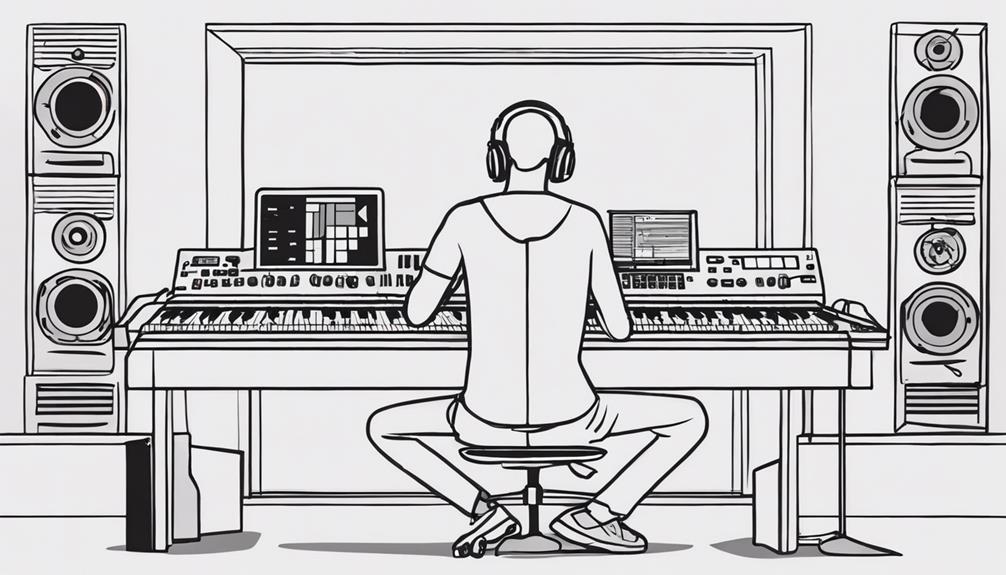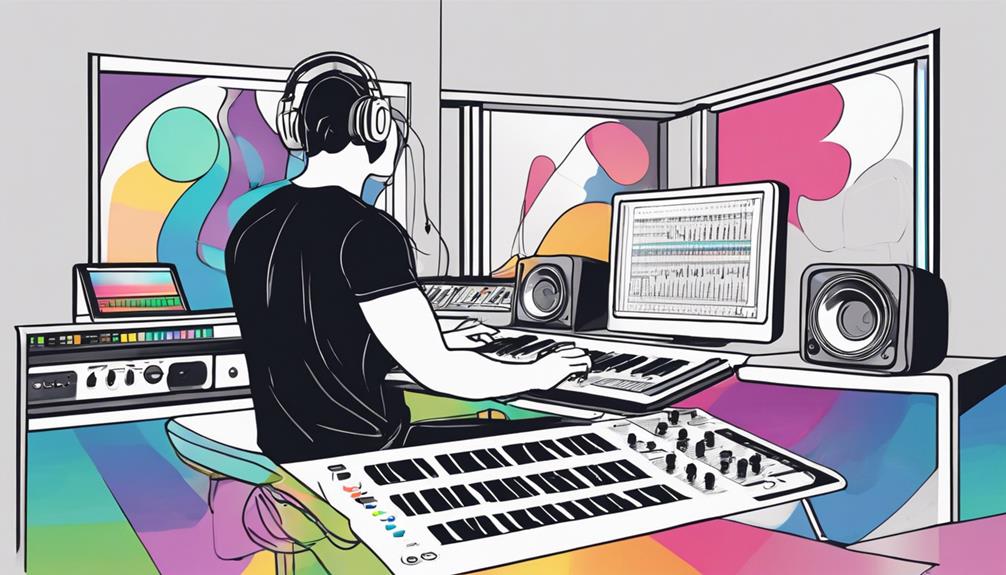Rekindle your music production passion by reflecting on what sparked your interest, reconnecting with your initial inspiration, and cultivating inner creativity. Embrace stillness to boost your creative process and track your journey to reignite motivation. Identify and tackle any obstacles hindering your passion, whether internal beliefs or external factors. Collaborate with fellow musicians for fresh ideas, accountability, and renewed passion. Master techniques that bring the spark back to your music.
Key Takeaways
- Reflect on your initial inspiration and passion for music production.
- Cultivate inner quiet to enhance creativity and focus.
- Revisit past successes and obstacles to reignite motivation.
- Overcome barriers like burnout by seeking support and experimenting.
- Collaborate with others to bring fresh perspectives and inspiration.
Reconnect With Your Initial Inspiration
Reflect on what initially sparked your curiosity and excitement about music production.
Think back to the roots of your passion for music, the very beginning of your musical journey. Perhaps it was a particular song that moved you deeply, a desire to express yourself creatively, or the thrill of bringing sounds together to create something entirely new.
Your drive and passion for music production may have waned over time, especially if you've faced obstacles or started to feel burnt out. But now is the perfect moment to reconnect with that initial spark that set you on this path.
Revisiting your early desires and dreams related to music production can be a transformative experience. It's a chance to understand any beliefs or obstacles that may have been holding you back and to overcome them.
Cultivate Inner Quiet for Creativity
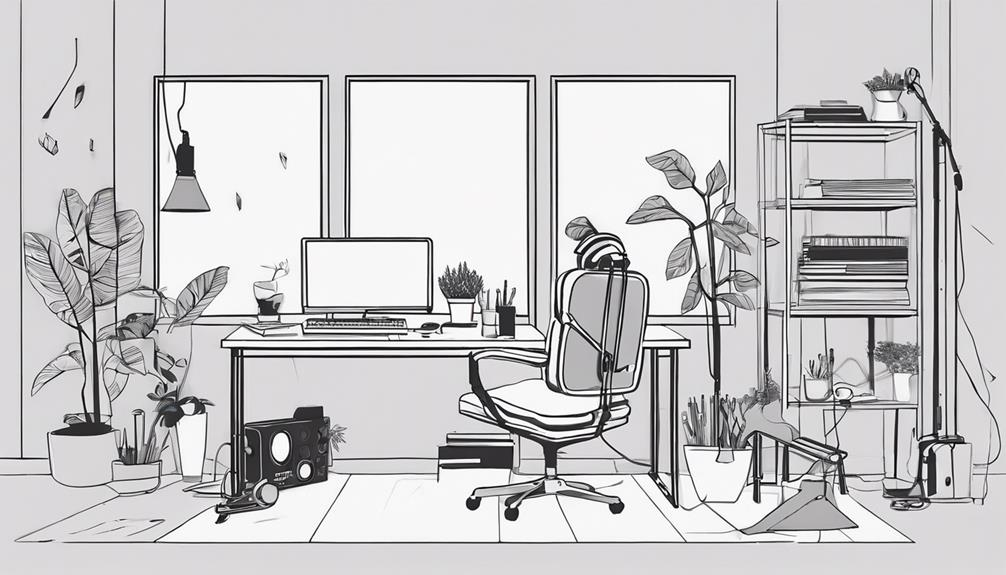
To access deep creativity in music production, it's essential to cultivate inner quiet, minimizing mental chatter and physical tension. Taking the time to create a space of inner quiet allows your passion for music to flow freely, enhancing your creative process.
Practices like meditation or techniques such as the Alexander Technique can help you develop this inner quiet, enabling a deeper connection to your creativity. By quieting your mind and body, you can make music from a place of clarity and inspiration, fostering a more authentic expression of your artistic vision.
Embracing moments of stillness and calmness during your music-making sessions can lead to breakthroughs in creativity, as you tap into the depths of your passion and imagination. Recognize the importance of cultivating inner quiet as an ongoing practice, allowing for continuous insights and a profound relationship with your creative journey.
Reflect on Your Music Journey
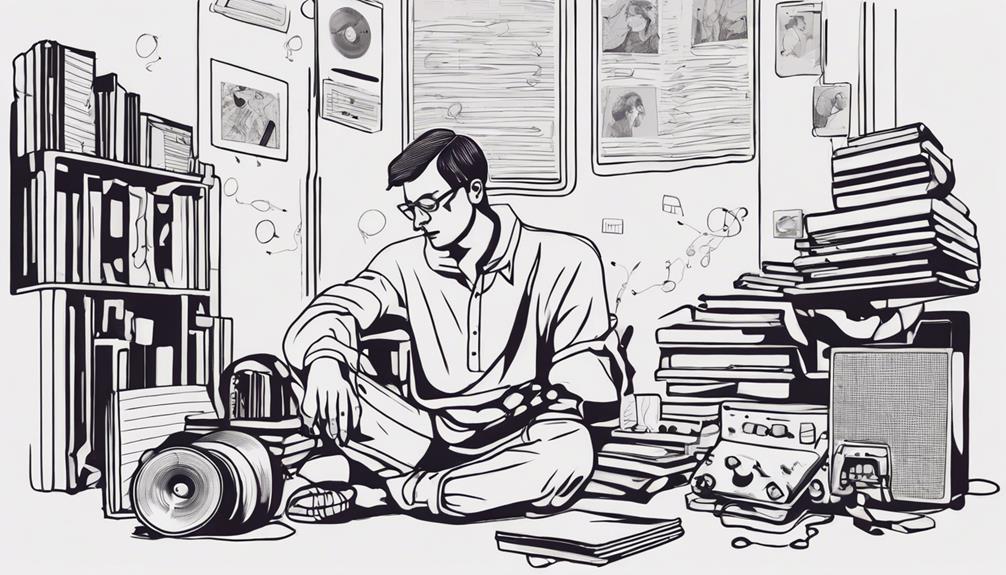
Reflecting on your music journey is crucial in order to gain valuable insights into your growth and passion for music production.
Take the time to revisit past successes and consider what initially sparked your passion for music production.
Identify any obstacles or setbacks that may have led to a loss of passion.
Track the evolution of your skills and creativity over time.
Through this reflection, you can rekindle enthusiasm and motivation for music production.
Recognizing how far you've come and the challenges you've overcome can reignite your passion.
Understanding the journey you've been on, including the highs and lows, can help you appreciate your progress and reignite the fire within you.
Embrace the lessons learned from past experiences to fuel your creativity and passion moving forward.
Reflecting on your music journey is a powerful tool to reignite your love for music production.
Overcome Barriers to Passion
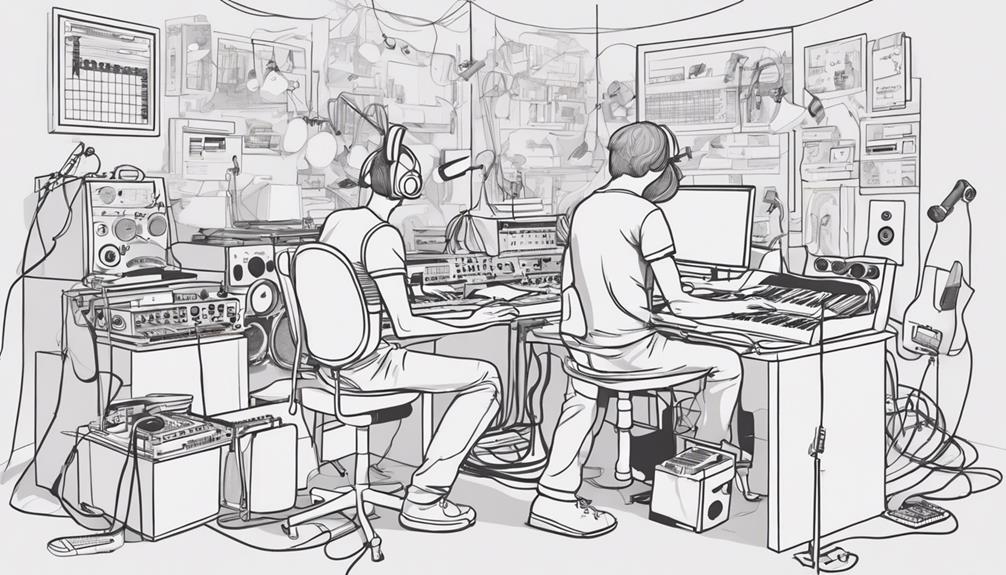
Identify any external factors hindering your passion for music production in order to effectively overcome barriers and reignite your creativity.
If time constraints or burnout are holding you back, consider taking time to evaluate your schedule and prioritize your music production. Don't let distractions like endless phone calls disrupt your creative flow; set boundaries to protect your time in the studio.
Seek support from fellow musicians, online communities, or mentors who can offer guidance and encouragement.
Remember to take breaks when needed to prevent burnout and allow yourself time to rejuvenate and rediscover your love for music production.
Additionally, don't be afraid to experiment with new techniques, genres, or equipment. Trying something fresh can spark creativity and passion in your music production journey.
Collaborate and Reignite Your Love
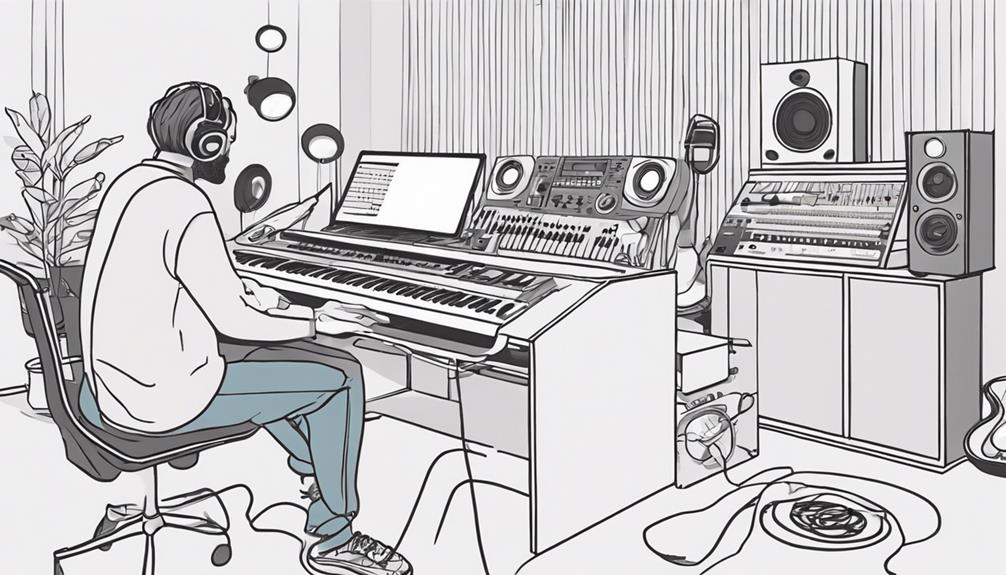
Overcoming barriers in your passion for music production can be achieved through collaboration with other musicians, reigniting your love for the creative process. When you collaborate with fellow music producers or artists, you open doors to new possibilities and experiences that can reignite your passion for music production.
Here's how collaborating can help you rekindle your love for music production:
- Fresh Perspectives: Collaborating with others brings in fresh perspectives, ideas, and inspiration that can breathe new life into your music projects.
- Accountability and Progress: Working with collaborators holds you accountable and motivates you to make consistent progress in your music endeavors, keeping the momentum going.
- Innovative Creations: Collaborations can lead to the creation of unique and innovative music pieces that you may not have been able to achieve on your own, sparking a renewed sense of excitement and passion for music production.
Frequently Asked Questions
How Do I Get My Passion for Music Back?
To reignite your passion for music, remember what drew you in initially. Explore new styles or collaborations for fresh inspiration. Take breaks for rejuvenation. Set challenging goals. Keep learning to surpass creative blocks and improve skills.
Why Did I Lose My Passion for Music?
You lost your passion for music due to external pressures, uninspiring gigs, burnout, daily stress, comparison, and feeling stuck. Recognizing these factors is essential. Addressing them can help reignite your love for music production and find motivation again.
How to Make Music Production Fun Again?
To make music production fun again, try experimenting with new genres, collaborating with others, attending events for inspiration, setting achievable goals, and taking breaks. These steps can reignite your creativity and passion for creating music.
How Do I Get My Music Inspiration Back?
To get your music inspiration back, immerse yourself in what moves you. Explore diverse genres, collaborate with fellow creators, and attend live events. Let your passion guide you, and soon, the spark will reignite.
Conclusion
So go ahead and dive back into music production with a renewed sense of passion and purpose!
Remember, the possibilities are endless and the music world is waiting for your unique sound.
Don't let anything hold you back – you're a musical genius just waiting to shine brighter than ever before.
Let your creativity flow and watch as your love for music production grows beyond your wildest dreams! Let your creativity flow and watch as your love for music production grows beyond your wildest dreams! Dive into experimenting with new sounds, techniques, and software that push your boundaries and unlock your full potential. As you learn how to work in music production, you’ll discover the perfect harmony between technical skills and artistic expression, turning your passion into something truly extraordinary.

